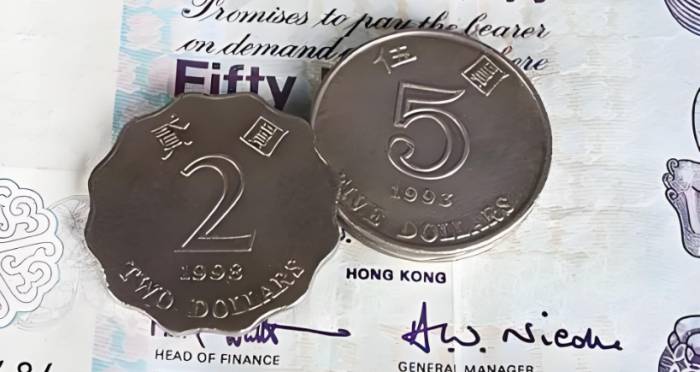Global markets take a sudden turn!
This afternoon, the Japanese stock market suddenly dived, with the Nikkei index falling rapidly by more than 1%. At the same time, the South Korean stock market also saw increased losses in the afternoon, with the Indian stock indices Nifty and Sensex both falling by 1%. The container shipping index, which is an indicator of external demand, also plummeted by more than 10% in the European futures contracts. It is worth mentioning that the US dollar has also experienced a significant drop against the Japanese yen. So, what exactly has happened?
A former Japanese official stated today that the Bank of Japan's interest rate hike pace might be faster than many people currently anticipate, and the central bank should strive to better communicate these actions to ensure that the market does not panic. Subsequently, the yen appreciated significantly, and the market began to worry whether the yen carry trade reversal from early August would make a comeback.
It is noteworthy that recent data shows that new arbitrage trades have resumed, with leveraged hedge funds increasing their short positions in yen futures. Meanwhile, the US dollar is depreciating, and the yen is appreciating. This will undoubtedly increase market volatility. Another data point sensitive to the yen carry trade is SOFR, which has also shown signs of picking up recently.
The plunge is coming
This afternoon, the US dollar suddenly plummeted against the Japanese yen, with the drop quickly exceeding 0.5%, and the yen exchange rate is just a step away from the level on August 5th. On that day, the yen surged by 1.62%, triggering a significant drop in the global equity markets.
As the yen exchange rate once again strengthens, the Japanese stock market also began to plunge. The Nikkei 225 index, which was still strong in the morning, started to dive rapidly in the afternoon, and the Topix index fell quickly to a level of more than 1%. Following the plunge of the Japanese stock market was the South Korean stock index.
The main reason for this fluctuation may be the latest statement by a former Bank of Japan official, Watanabe Toru, who is one of Japan's top anti-inflation experts. According to reports, Watanabe said today that the Bank of Japan may raise interest rates faster than many people currently expect, and the central bank should strive to better communicate these potential measures to ensure that the market does not panic. "The pace of interest rate hikes could be faster than everyone anticipates," he said. "It is absolutely possible that the Bank of Japan will raise interest rates twice more this year."
In addition, on Tuesday this week, Bank of Japan Governor Haruhiko Kuroda submitted documents to the Japanese government, stating that if the Japanese economy and price performance meet the central bank's expectations, the Bank of Japan will continue to raise interest rates.On the other hand, the market may also be reflecting the U.S. non-farm data for August. Gain Capital Group believes that a better-than-expected employment report will consolidate the prospect of a "soft landing" and a 25 basis point rate cut in September, which will be favorable for the U.S. dollar. An orderly pace of rate cuts may be the scenario the Federal Reserve would most like to see. Conversely, a significantly worse-than-expected data may stimulate expectations of a recession and the probability of a 50 basis point rate cut, which would be bearish for the U.S. dollar and U.S. stocks. As of now, the market estimates that the U.S. will add 1.64 million jobs in August, up from 1.14 million in the previous month, with the unemployment rate falling from 4.3% to 4.2%, and the growth rate of hourly wages rising from 3.6% to 3.7%.
Will carry trade again disturb the market?
So, with the appreciation of the yen, will the carry trade again disturb the market and perform a black swan event like that on August 5th? From the current data, this possibility is not small.
Standard Bank G-10 strategy head Steve Barrow said: "Carry trade unwinding does pose a serious threat to the optimistic view of future risk assets." The strategist wrote in a report on Thursday that as Japanese interest rates and the yen appreciate, the overseas asset investments recovered from Japan's trade and current account surpluses over the decades may experience a "reversal." The Bank of Japan, rather than the Federal Reserve, may be the "most important central bank," and the "tragedy" caused by the yen's surge and the stock market's plunge in August may be a "harbinger of the future." Although the Federal Reserve's moderate and stable rate cuts may be beneficial for riskier assets, if the Bank of Japan's rate hike leads to a large number of carry trade unwinding, the benefits of the Federal Reserve may be completely offset.
AGF Investments currency strategist and co-head of fixed income Tom Nakamura said that it is not common for foreign exchange dynamics to have a broader impact on the U.S. stock market, and people have to go back to the 1997 Asian financial crisis to find relevant comparisons. Further unwinding of yen carry trades is still a very large cross-market risk, and investors are somewhat worried about the actions of the Bank of Japan in the next one or two years.
Although the Bank of Japan has hinted that the next rate hike may be in October, yen carry trades are still large, active, and seem to be increasing. Recent data shows that new carry trades have resumed, and leveraged hedge funds have increased their short positions in yen futures.
Another indicator to observe the reversal of yen carry trade, SOFR, has also shown signs of picking up recently.
T. Rowe Price fixed income department head Arif Hussain recently warned that after the Bank of Japan's rate hike in July triggered a sharp reversal of yen carry trades, investors "saw the first shift of this fault, and future market volatility will intensify." The hawkish stance of the Bank of Japan and concerns about the slowdown in U.S. economic growth triggered a frenzy of demand for the yen on August 5th, but investors may have overlooked the deeper roots of the downturn in global stock, currency, and bond markets. As the interest rates of the world's fourth-largest economy continue to rise, a large amount of Japanese funds invested overseas may be repatriated. "To some extent, the rise in Japanese bond yields may attract the country's large life insurance and pension investors to shift from other high-quality government bonds to Japanese government bonds." Arif Hussain had warned about yen interest rates before the plunge in August.






























Comments
Join the discussion